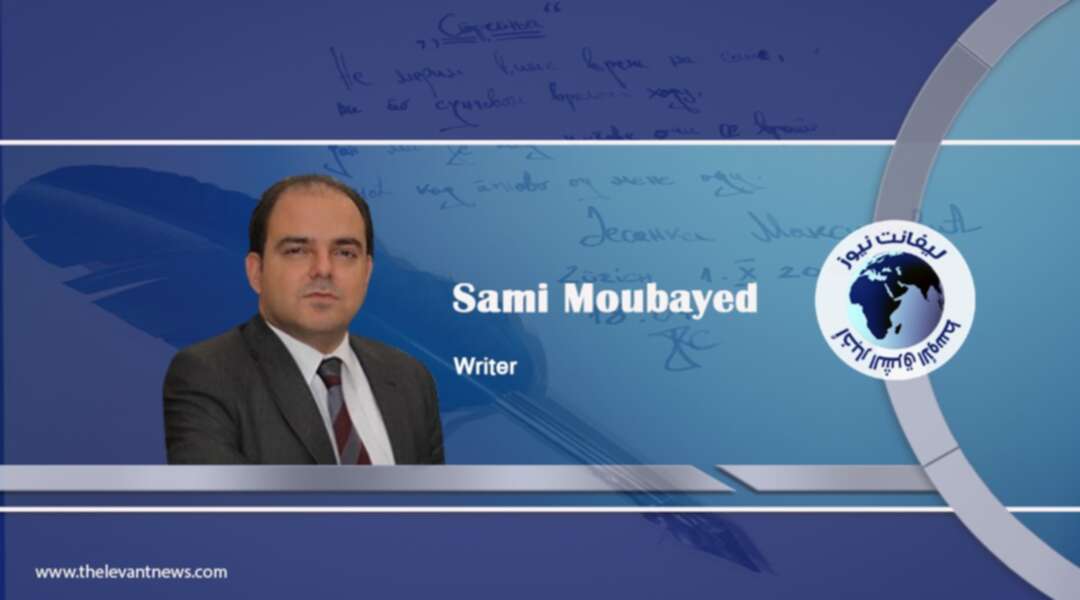-
A lesson for Lebanon from 1957 Syria

Saudi Foreign Minister Prince Faisal bin Farhan then explained his country’s position, saying: “I think we have come to the conclusion that dealing with Lebanon and its current government is not productive and not helpful with Hezbollah’s continuing dominance of the political scene.” He added that severing diplomatic ties with Lebanon aims at pushing the country “in the direction of real change.”
An uphill battle
It is hard to see how Saudi Arabia can impose that change, however, if it is no longer financially capable of bankrolling Hezbollah opponents, and nor is it diplomatically present in Lebanon. Far from bringing about change, the Gulf walkout will only strengthen the hands of Iranian allies in Lebanon—namely Hezbollah—who already control the presidency through their ally President Michel Aoun, and the speakership of parliament, through their other ally Nabih Berri. In addition to commanding arsenal of sophisticated weapons, which makes them stronger than the Lebanese Army, it currently holds a parliamentary bloc of 13 seats and is represented in the Lebanese cabinet with two portfolios.
Hezbollah is expected to either maintain that representation, or raise it in the upcoming parliamentary elections scheduled for next March. Seven months later, they plan to nominate their ally Suleiman Frangieh to the presidential seat at Baabda Palace, once Aoun’s term expires in October 2022. Scion of a leading Maronite political family and grandson of a former president, Frangieh is a ranking member of the Hezbollah-led March 8 Coalition who nominated George Qordahi for the Ministry of Information last September. With no physical presence in Lebanon, Saudi Arabia has little hope of influencing that election.
Over the years, Saudi Arabia has to clip Iran’s wings in Lebanon, with no avail. It supported their opponents in Lebanese politics, starting with the Future Movement of former Prime Minister Saad al-Hariri onto the Lebanese Forces of Samir Gagegea. In 2006 it voted for UNSCR 1701, which calls for monopolizing arms in the hands of the Lebanese state and pushing all non-state players away from the Lebanese-Israeli borders. In 2008, it backed then-Prime Minister Fouad al-Siniora, who tried to dismantle Hezbollah’s telecommunications network at Rafik al-Hariri International Airport, only to suffer a violent backlash from Hezbollah. At the time, Hezbollah militants stormed the Lebanese capital, picking up the handful of armed men who had shown up on the streets to confront them, while Hasan Nasrallah famously threatened to “cut the hand” of whoever tries to hamper with Hezbollah arms.
Lack of reliable partners
Once of the reasons why none of the above worked was because Saudi Arabia had no reliable Sunni Muslim ally in Lebanon after the 2005 assassination of Prime Minister Rafik al-Hariri. His son and political heir, Saad al-Hariri, has proven too weak to stand up to Hezbollah and on the contrary, sometimes found himself leaning on them for support in Lebanese domestics. Last year, for example, they supported his candidacy for the premiership, against the will of their allies in the Free Patriotic Movement (FPM). More recently they found a common enemy in Lebanese judge Tarek Bitar, who is handling investigation into the Beirut port explosion of August 2020, which killed over 230 people and tore down half of the Lebanese capital. Bitar drew up a list of suspects all accused of “criminal negligence” that led to the port explosion, which included ex-Interior Minister Nouhad Machnouk (a Hariri protégé) and Ali Hasan Khalil and Ghazi Zuetier (members of the Amal Movement allied to Hezbollah). Both Hariri and Nasrallah see eye-to-eye when it comes to Judge Bitar, calling for his removal, giving them plenty of room to collaborate within the complex web of Lebanese politics.
For lack of better alternative, the Saudis have continued to work with Hariri, albeit reluctantly. It is an open secret in Lebanon that Saudi Arabia’s Crown Prince Mohammad Bin Salman (MBS) thinks poorly of him and has repeatedly refused to grant him an audience. Meanwhile Riyadh has tried building bridges with other Sunni figures like General Ashraf Rifi, former director of Internal Security and current premier Najib Mikati, who is a lifelong friend of Saudi Arabia. Rifi agreed to take on Hezbollah, but lacked the manpower, support base, and money for such an undertaking, whereas Mikati simply refused to confront the Iran-backed party, realizing that he is no match for them. In fact, it was Hezbollah’s last minute approval that had brought him to power twice, first in 2011 and now in 2021, giving him no reason to complain.
Gagegea: An unorthodox ally
The Saudis also tried to support Shiite dissidents like Hezbollah’s former secretary-general Subhi Tufayli, who tried and failed to penetrate Hasan Nasrallah’s powerbase in southern Lebanon and within the Shiite community at large. Others Lebanese came up and offered their services to Saudi Arabia, like Samir Gagegea, who has steadily been marketing himself as their ally in Christian politics, with an axe to grind with Hezbollah. Last month his forces came to blows with Hezbollah in Ayn El Rummaneh, the old neighborhood of Beirut from which the Lebanese civil war back in 1975. Six people were killed, all being Shiites. Gagegea made two points clear: that his men were armed, and that they were ready for battle, and if needed, another civil war to fight Hezbollah.
But unless they receives funds and weapons to fight, whether from Saudi Arabia or elsewhere, Gagegea’s supporters stand no change in a military confrontation since they are no match for Hezbollah fighters. They are far less organized, armed, and indoctrinated, and would easily been annihilated in any head-on confrontation.
A lesson from Syria, 1957.
Saudi Arabia’s walkout might signal another approach, however, being complete disengagement from Lebanon so that the country sinks into total chaos, allowing Hezbollah and Iran to shoulder blame for its collapse and responsibility for its resurrection, which will take years. It will also take plenty of money, which Iran does not have.
That’s what the Americans did with Syria after all, not today, but back in 1957. At the time, the Eisenhower Administration raised red flags over Syria, claiming that the country was inching dangerously close to becoming a Soviet satellite. A communist MP had just been voted into parliament, becoming the first communist parliamentarian in the Arab World, while Syria’s president had visited Moscow and its defense minister had signed off a $700 million economic and military agreement with the Soviet government. The Syrian government had also exchanged ambassadors with communist China, signed economic deals with Romania, and was sending students to study in East Germany. The CIA tried staging a coup to turn the tide and topple pro-Soviet politicians in Damascus, and when that failed, it decided to severe diplomatic relations with Syria.
The American ambassador James Moose was withdrawn and his Syrian counterpart Farid Zayn al-Din was expelled from Washington DC. That was just months after Damascus had expelled the British and French ambassadors over the 1956 Suez Canal War. As a result, only one embassy remained open and active in Damascus, being that of the Soviet Union. Soviet influence reached its apex during the late 1950s, accumulating with an ill-fated union with Gamal Abdul Nasser of Egypt in 1958, a staunch ally of the USSR. Far from encouraging democracy, free trade, and economic liberalization, the union republic introduced socialism and authoritarianism to Syria, positioning it permanently within the Eastern Bloc for what remained of the Cold War.
The same might happen to Lebanon…
by: Sami Moubayed

You May Also Like
Popular Posts
Caricature
BENEFIT Sponsors BuildHer...
- April 23, 2025
BENEFIT, the Kingdom’s innovator and leading company in Fintech and electronic financial transactions service, has sponsored the BuildHer CityHack 2025 Hackathon, a two-day event spearheaded by the College of Engineering and Technology at the Royal University for Women (RUW).
Aimed at secondary school students, the event brought together a distinguished group of academic professionals and technology experts to mentor and inspire young participants.
More than 100 high school students from across the Kingdom of Bahrain took part in the hackathon, which featured an intensive programme of training workshops and hands-on sessions. These activities were tailored to enhance participants’ critical thinking, collaborative problem-solving, and team-building capabilities, while also encouraging the development of practical and sustainable solutions to contemporary challenges using modern technological tools.
BENEFIT’s Chief Executive Mr. Abdulwahed AlJanahi, commented: “Our support for this educational hackathon reflects our long-term strategic vision to nurture the talents of emerging national youth and empower the next generation of accomplished female leaders in technology. By fostering creativity and innovation, we aim to contribute meaningfully to Bahrain’s comprehensive development goals and align with the aspirations outlined in the Kingdom’s Vision 2030—an ambition in which BENEFIT plays a central role.”
Professor Riyadh Yousif Hamzah, President of the Royal University for Women, commented: “This initiative reflects our commitment to advancing women in STEM fields. We're cultivating a generation of creative, solution-driven female leaders who will drive national development. Our partnership with BENEFIT exemplifies the powerful synergy between academia and private sector in supporting educational innovation.”
Hanan Abdulla Hasan, Senior Manager, PR & Communication at BENEFIT, said: “We are honoured to collaborate with RUW in supporting this remarkable technology-focused event. It highlights our commitment to social responsibility, and our ongoing efforts to enhance the digital and innovation capabilities of young Bahraini women and foster their ability to harness technological tools in the service of a smarter, more sustainable future.”
For his part, Dr. Humam ElAgha, Acting Dean of the College of Engineering and Technology at the University, said: “BuildHer CityHack 2025 embodies our hands-on approach to education. By tackling real-world problems through creative thinking and sustainable solutions, we're preparing women to thrive in the knowledge economy – a cornerstone of the University's vision.”
opinion
Report
ads
Newsletter
Subscribe to our mailing list to get the new updates!




















